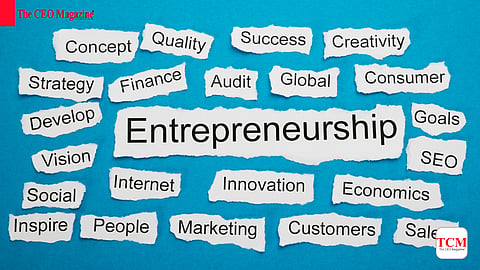
- News
- Women
- Magazine
- IndustryIndustry
- InsightsInsights
- Success Stories
- PublishPublish
- ContactContact
- Media KitMedia Kit

Entrepreneurship is exciting, rewarding, and challenging all at once. But along with successes, failures are inevitable. How you handle these failures, learn from them, and adapt quickly often determines the long-term success of your venture.
Understanding that failure is a natural part of the entrepreneurial journey allows you to approach setbacks with perspective rather than fear. Every failed experiment, product launch, or strategy provides valuable insights that can shape your next steps.
The first step in handling failure is to see it not as a defeat but as feedback. Each setback teaches something about your market, customers, or operations.
Rather than dwelling on what went wrong, focus on questions like: What can I learn from this experience? How can I use this insight to improve? A mindset that embraces failure as a learning opportunity fosters resilience, creativity, and adaptability.
After a setback, take time to analyse the situation. What factors contributed to the failure? Was it the timing, the execution, or the concept itself?
Structured reflection helps you identify patterns and prevent similar mistakes in the future. Document lessons learnt and share them with your team—it builds a culture where experimentation and learning are valued over blame.
Failures often provide the most honest feedback about your business. Use data to understand why something didn’t work. Customer feedback, performance metrics, and market trends can guide you toward better strategies.
Avoid making hasty decisions based solely on emotion. Effective entrepreneurs combine analytical thinking with intuition to pivot, improve, and innovate after setbacks.
It’s natural to feel disappointed after a failure, but prolonged hesitation can slow progress. Accept the situation, extract the lessons, and move forward promptly.
Quick action allows you to test new approaches, adjust your strategies, and stay ahead in a competitive market. Entrepreneurs who linger too long in regret risk losing momentum and opportunities.
Handling failure is not just about strategy—it’s also about mindset. Emotional resilience helps you manage stress, maintain confidence, and support your team during tough times.
Practical steps include mindfulness, setting realistic expectations, and maintaining a healthy work-life balance. Resilient entrepreneurs are more likely to stay focused, make rational decisions, and inspire confidence in their team even under pressure.
You don’t have to experience every failure yourself. Study case studies, read stories of other entrepreneurs, and seek mentorship. Understanding the challenges and solutions of others can accelerate your learning curve.
Networking with experienced founders allows you to gain insights into industry-specific pitfalls, funding challenges, and operational mistakes—knowledge that can help you avoid common traps.
Encourage your team to try new ideas without fear of failure. A safe environment for experimentation promotes innovation and quick learning.
Celebrate attempts, not just successes. A culture that values curiosity and iterative improvement ensures that mistakes become stepping stones rather than setbacks.
Sometimes failure signals that a significant change is required—whether it’s your product, business model, or market strategy. Recognise when it’s time to pivot and act decisively.
Successful entrepreneurs are willing to iterate or shift direction based on evidence. Pivoting doesn’t mean giving up; it means optimising for better outcomes.
Every failure is an opportunity to build institutional knowledge. Document insights, strategies, and solutions in a central repository.
A “failure playbook” helps future team members understand past challenges and prevents repeated mistakes. Over time, this resource becomes a powerful tool for decision-making and strategy refinement.
While learning from failures is essential, don’t forget to acknowledge progress and small victories along the way. Recognising incremental achievements keeps morale high and motivates the team to keep experimenting.
Balance reflection with action. Use lessons from failure to make improvements but continue moving toward your broader goals.
Failures are inevitable in entrepreneurship, but they are not the end—they are learning opportunities. By shifting your perspective, reflecting systematically, making data-driven decisions, and cultivating resilience, you can turn setbacks into stepping stones for growth.
Entrepreneurs who handle failures effectively don’t just survive—they innovate, adapt, and thrive. Fast learning, decisive action, and a culture that embraces experimentation ensure that every challenge strengthens your startup and prepares it for long-term success.
Follow us on Google News
